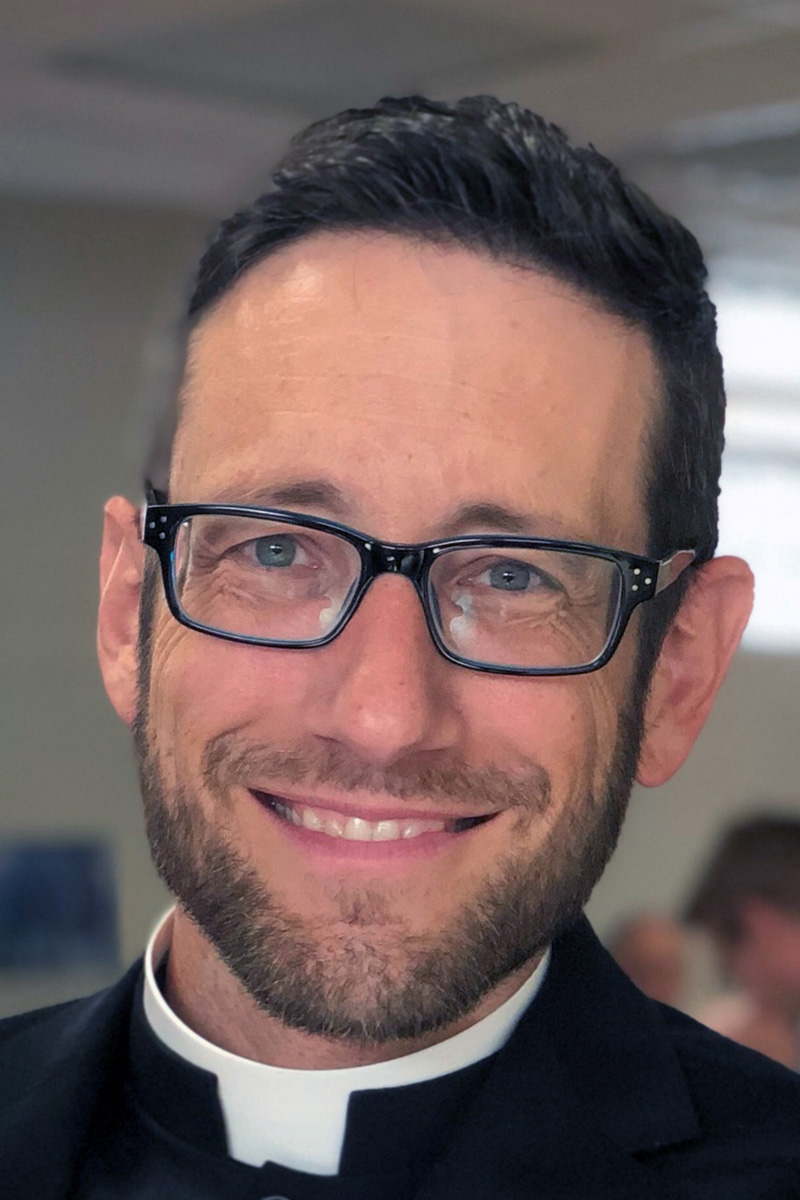
Photo courtesy of the author.
Key points:
• Deeply rooted problems plaguing the denomination will not be solved by legislation but by repentance and a return to radical obedience to Scripture, says one United Methodist pastor.
• Mannion is concerned that even in a post-separation church, both factions will repeat the same cycle if there isn’t decisive reform on these five issues.
In 1517 A.D., Martin Luther wrote the 95 theses in response to abuses in the Catholic Church. As a United Methodist pastor, I am seeing deeply rooted leaven that will continue to affect the whole lump if not repented of and immediately addressed, regardless of what form our church takes post-separation.
I write these five theses with a heavy concerned heart. As a man who will join the Global Methodist Church, or whatever “traditionalist” expression of Methodism arises, I am concerned that the same cycle will repeat if there isn’t decisive reform on these five issues. These are deeply rooted habits, mindsets and operational standards that have become norms. Therefore, they will not be solved by legislation but by repentance and a return to radical obedience to Scripture.
Revelation 2:5 (ESV) states: “Remember, therefore, from where you have fallen; repent, and do the works you did at first. If not, I will come to you and remove your lampstand from its place, unless you repent.”
1. As a denomination, we have departed from our scriptural and our Wesleyan roots. It takes only a cursory review of historic Methodism to see how far we have wandered. I’m no Wesley expert, but I know enough to know he would be outraged — and not just at the “progressives,” but also at the weak knees, tolerance and silence of the “traditionalists.” We are merely a distorted, blood-stained facsimile of what our forefathers founded. We must return to radical obedience to the Word of God and return to our historic roots. (2 Timothy 3:16-17; Hebrews 4:12)
2. We define truth by cultural impulses rather than the God-breathed Holy Scriptures. (2 Timothy 3:16-17; Psalm 119:160; John 16:13; Matthew 7:24)
3. Love has been redefined as “tolerating and approving of that which God does not tolerate or approve of,” namely sin and those who propagate it rebelliously. It is now acceptable to propagate the lie: “If you disagree with my choices, you don’t love me.” (John 14:15; 1 Corinthians 5)
4. The Book of Discipline, now thoroughly ignored, is good for not much more than fire starter or a pretty bookshelf piece. It is a dead letter, only affecting those who choose to follow it. Those who choose to live in ecclesiastical disobedience are not only allowed to continue in their rebellion to the general church but are rewarded with positions of authority. Therefore, we are a lawless denomination governed by whims, feelings and social justice talking points. When a body abandons her defining standard, there is no body. When denominational law is optional, there is no law or denomination. (Matthew 12:25)
5. Leadership allows false teachers to continue to lead the laity away from the Shepherd, and consider doing so to be a virtue because they are being “tolerant.” In short, truth is being sacrificed on the altar of unity at the cost of countless souls whose blood will be on their hands (Ezekiel 33:1-9; James 3:1; 1 Timothy 3:2-10). Tolerating false teachers in the Church is not a virtue and is antithetical to the teaching of Scripture and historic Methodism. “Expel the wicked person from among you.” — 1 Corinthians 5:13 (NIV)(Revelation 2:1-11; Acts 20:29-31; Galatians 5:7)
Commentaries
In Revelation 2, the church of Ephesus is commended for their lack of tolerance of false teachers. They are called to repent from where they have fallen, or else. The “or else” is a sobering wake-up call that should lead us all to carefully evaluate where we have strayed, OR ELSE “I will come to you and remove your lampstand from its place, unless you repent.” (Vs 5)
The United Methodist Church, progressives and traditionalists alike, have wandered so far from our biblical Wesleyan roots that they are barely recognizable. We have put tolerance before truth, finances before fervor for the Word of God, and membership numbers before mission. We are no longer followers of the teachings of John Wesley. We must repent and return to our Scriptural and historic Methodist roots.
Let us use the parable of the Prodigal Son as motivation to return to our Savior and His Word. If we repent as a body, he is “faithful and just to forgive us our sins and cleanse us of all unrighteousness.” Like the father in the parable, our heavenly Father is eager to forgive and forget… but we must repent! Turn around, Methodists! Turn around and return to your roots! If not, “I will come to you and remove your lampstand from its place … .”
Mannion is pastor of Faith United Methodist Church in Lancaster, New York, and Emmanuel United Methodist Church in Orchard Park, New York.
News media contact: Tim Tanton or Joey Butler at (615) 742-5470 or newsdesk@umnews.org. To read more United Methodist news, subscribe to the free Daily or Weekly Digests.
Like what you're reading? Support the ministry of UM News! Your support ensures the latest denominational news, dynamic stories and informative articles will continue to connect our global community. Make a tax-deductible donation at ResourceUMC.org/GiveUMCom.



